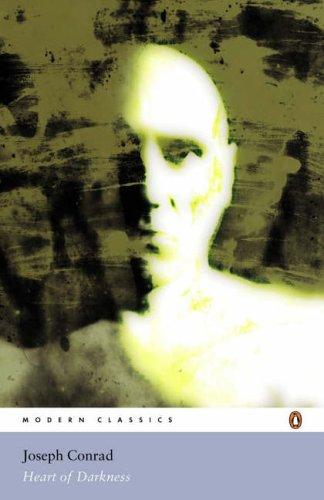Review of 'Heart of Darkness (Penguin Modern Classics)' on 'Goodreads'
5 stars
Heart Of Darkness by Joseph Conrad could very well be the darkest and most serious book I've read. The story is narrated by a fictional character named Marlow to the author and others resting on a yawl. Marlow talks of his past journey on a steamboat up a river in a dark continent to bring back an ivory trader named Kurtz whom everyone reveres for his achievements. He reaches the colonial station after a risky adventure through the tropical land and finds Kurtz in a near death state. Also, his image of greatness falls after Marlow discovers the real activities of Kurtz in his colonial trading post. He sees Kurtz as a reprehensible being. Kurtz dies a while later on the journey back downstream. His last words indicate his probable realization of the havoc he has caused in his life. Back in Europe, Marlow faces Kurtz's widow and gives her his last words.
This novella by Conrad draws inspiration from his actual journey on the Congo river in Africa. The narration from the start is strongly evocative of darkness. Everything from the descriptions of the European towns, the Congo river, the African continent, the color of the inhabitant savages, their ways of life, the colonies of the Europeans, the cannibalistic Africans who form a part of his steamboat crew and ultimately Kurtz himself. The language drips heavily with vividness. I almost felt like being in Marlow's shoes journeying slowly up the Congo through the primeval continent. Though Marlow grows to hate Kurtz, in the end he is forced to leave him with a good name in this world. Like Life Of Pi, this book feels great since it left me with more than one meaning of its narration. Is Conrad talking of the dark continent or the darkness inside us?
Heart Of Darkness is short (hence called a novella) at just 112 pages. I read the Penguin Classics version edited by Robert Hampson. It has Hampson's long and boring introduction which would interest only those studying the book rather than reading it. It also has Conrad's actual Congo Diary in which he noted the happenings of his actual journey in Africa. This book has a detailed notes section at the end of the story.
Published in 1902, the book is available now at Project Gutenberg freely for everyone.

